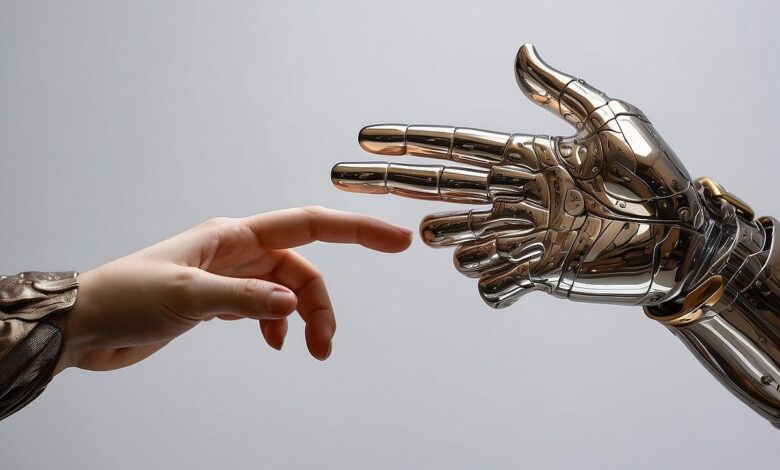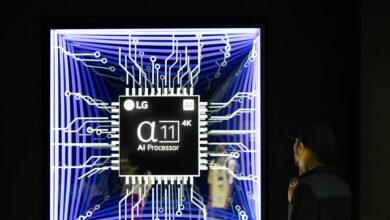The Mechanical Muse:. Artificial Intelligence Verus Human… | by Usman Mahfooz | May, 2024

In the twilight of the 21st century, when steam and steel have given way to silicon and circuits, a peculiar debate has arisen. The learned societies and coffeehouses buzz with discourse over a new kind of artist—a mechanical muse that creates with lightning speed and unfathomable precision. This new creator, this Artificial Intelligence, produces works of such intricate beauty and complexity that it challenges our very understanding of originality and invention. But amidst this marvel, a question lingers like a shadow: Can a machine truly be creative?
The Calculating Engine’s Artifice
To comprehend the nature of this question, one must delve into the workings of the mechanical mind. Unlike the human brain, which is a repository of dreams, fears, and inspirations, the AI operates through a process of repetition and iteration. It scans vast oceans of data, performs intricate calculations, and generates countless variations of its task. Through this relentless process, it sifts and selects, presenting the most fitting outcome as though it were an act of divine inspiration.
The strength of the AI lies in its ability to perform these tasks with a speed and precision that would confound any human. It is a mechanical cyclops, its single eye unblinking, ever-watchful, and ever-calculating. But, is this creativity? Or is it merely the cunning illusion of creativity, a trick played by gears and algorithms upon the unsuspecting human eye?
The Human Spark
The human mind, in stark contrast, is a labyrinthine marvel, capable of sudden leaps of insight and bursts of inspiration. Our creativity is born of the tumultuous interplay of emotions, experiences, and subconscious musings. It is a fire that burns uniquely in each individual, fueled by the enigmatic spark of our souls. Human creativity is not merely the sum of its parts but a mysterious synergy that transcends logic and computation.
To the mechanical muse, the genesis of an idea is a matter of cold calculation. To the human, it is a moment of transcendence, an epiphany that defies explanation. Herein lies the crux of our inquiry: Can a being of brass and wire, no matter how sophisticated, ever truly replicate this ineffable quality?
False Illusion of Inception
Consider the concept of inception—the birth of an idea. For us, it is often a mystifying experience, a moment when the veil of the mundane parts to reveal a glimpse of the extraordinary. Our ideas emerge from a confluence of thoughts, memories, and sensations, each uniquely colored by our personal history and temperament.
Yet, some might argue that our creativity, too, is a form of iteration—a dance of neurons and synapses echoing the mechanical processes of the AI. Could it be that in the eyes of a higher intelligence, our vaunted originality is but a more complex pattern of repetition? Is our inception as predetermined and mechanical as that of our silicon progeny?
Boundary of the Original
As we stand on the cusp of a new era, it is imperative to recognize the boundaries of our mechanical muse. While AI dazzles with its capacity to generate and iterate, it remains a creation of our own ingenuity, bound by the limits of its programming and data. It can emulate the appearance of creativity but cannot capture its essence.
The true spark of originality, the divine spark that kindles within the human soul, remains beyond the reach of gears and circuits. As we marvel at the achievements of our artificial creations, let us not forget the profound depths of our own creativity. For in the end, it is not the machine but the human heart and mind that are the true sources of wonder and inspiration.



